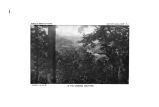| OCR Text |
Show 2 4 MYTHS OF THE CHEROKEE [ ETH. ANN. 19 time he hoped also to obtain more definite information concerning the mines. As the chief purpose of the expedition was the discovery of the mines, many of the officers regarded this change of plan as a mistake, and favored staying where they were until the new crop should be ripened, then to go directly into the mountains, but as the general was u a stern man and of few words,' 1 none ventured to oppose his resolution. 1 The province of Co? a was the territory of the Creek Indians, called Ani'- Kusa by the Cherokee, from Kusa, or Coosa, their ancient capital, while Chiaha was identical with Chehaw, one. of the principal Creek towns on Chattahoochee river. Cotitachiqui may have been the capital of the Uchee Indians. The outrageous conduct of the Spaniards had so angered the Indian queen that she now refused to furnish guides and carriers, whereupon De Soto made her a prisoner, with the design of compelling her to act as guide herself, and at the same time to use her as a hostage to command the obedience of her subjects. Instead, however, of conducting the Spaniards by the direct trail toward the west, she led them far out of their course until she finally managed to make her escape, leaving them to find their way out of the mountains as best they could. Departing from Cofitachiqui, they turned first toward the north, passing through several towns subject to the queen, to whom, although a prisoner, the Indians everywhere showed great respect and obedience, furnishing whatever assistance the Spaniards compelled her to demand for their own purposes. In a few days they came to " a province called Chalaque," the territory of the Cherokee Indians, probably upon the waters of Keowee river, the eastern head- stream of the Savannah. It is described as the poorest country for corn that they had yet seen, the inhabitants subsisting on wild roots and herbs and on game which they killed with bows and arrows. They were naked, lean, and unwarlike. The country abounded in wild turkeys (" gallinas"), which the people gave very freely to the strangers, one town presenting them with seven hundred. A chief also gave De Soto two deerskins as a great present. 2 Garcilaso, writing on the authority of an old soldier nearly fifty years afterward, says that the " Chalaques" deserted their towns on the approach of the white men and fled to the mountains, leaving behind only old men and women and some who were nearly blind. 8 Although it was too early for the new crop, the poverty of the people may have been more apparent than real, due to their unwillingness to give any part of their stored- up provision to the unwelcome strangers. As the Spaniards were greatly in need of corn for themselves and their horses, they made no stay, but hurried on. In a few days they arrived 1 Gentleman of Elvas, Publications of the Hakluyt Society, ix, pp. 52,58,64; London, 1851. " Ibid., p. CO. * Garcilaso, La Florida del Inca, p. 136, ed. 1723. |































































































































































































































































































































































































































